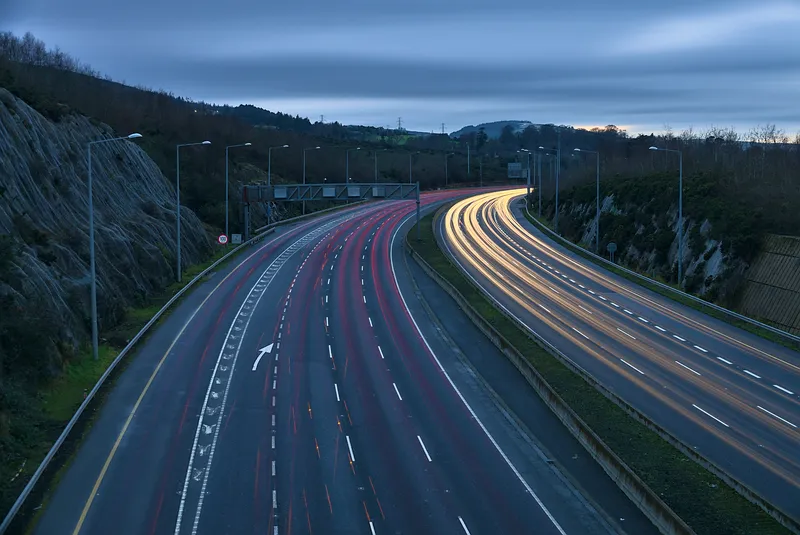Transport Infrastructure Ireland (TII) is working with the4 Irish police force, An Garda Síochána, on the installation of Ireland’s first average speed camera enforcement system, which will be deployed in the Dublin Port Tunnel.
Opened in 2006, the 4.5 km tunnel forms part of the M50 C-Ring road around Dublin City. Traffic levels through the tunnel have increased by 40 per cent over the last five years and as a result there is statistically, an increase in the potential for collisions and accidents.
June 13, 2016
Read time: 3 mins
Transport Infrastructure Ireland (TII) is working with the4 Irish police force, An Garda Síochána, on the installation of Ireland’s first average speed camera enforcement system, which will be deployed in the Dublin Port Tunnel.
Opened in 2006, the 4.5 km tunnel forms part of the M50 C-Ring road around Dublin City. Traffic levels through the tunnel have increased by 40 per cent over the last five years and as a result there is statistically, an increase in the potential for collisions and accidents.
Average speed camera enforcement systems look to mitigate this potential because statistics show that there is typically a 50 per cent reduction in the collision rate once in operation.
The average speed camera enforcement system monitors a driver’s average speed while driving through the Dublin Port Tunnel and if a driver is above the 80 km/h speed limit the driver will be in violation and enforcement penalties will apply.
When the average speed camera enforcement system determines that a vehicle has exceeded the speed limit, it will automatically create a record of the violation which will then be transmitted to An Garda Síochána for their action. The enforcement procedure will mirror the existing procedures developed by An Garda Síochána for automated processing of Road Traffic Offences that incur fixed charges and if applicable penalty points.
Large yellow poles will support the average speed camera enforcement system and testing will commence once the cameras are mounted. Upon completion of system testing it is anticipated that the system will go live later this year.
Average speed is recorded between two camera positions covering all lanes therefore switching lanes will have no effect on average speed monitoring. The system will not have flashing lights or other operational indications, but it will be monitoring at all times.
Chief Superintendent Aidan Reid, Garda National Traffic Bureau said, “We welcome this enhancement to the operations of the Dublin Port Tunnel. Due to an increase in traffic travelling through Dublin Port Tunnel this new enforcement system provides additional support toward maintaining a safe travel experience for all users of the Tunnel.”
“An average speed camera enforcement system will assist in maintaining the Dublin Port Tunnel’s strong safety record, said RII CEO Michael Nolan. “ TII is grateful to An Garda Síochána for supporting us with this operational improvement.”
Opened in 2006, the 4.5 km tunnel forms part of the M50 C-Ring road around Dublin City. Traffic levels through the tunnel have increased by 40 per cent over the last five years and as a result there is statistically, an increase in the potential for collisions and accidents.
Average speed camera enforcement systems look to mitigate this potential because statistics show that there is typically a 50 per cent reduction in the collision rate once in operation.
The average speed camera enforcement system monitors a driver’s average speed while driving through the Dublin Port Tunnel and if a driver is above the 80 km/h speed limit the driver will be in violation and enforcement penalties will apply.
When the average speed camera enforcement system determines that a vehicle has exceeded the speed limit, it will automatically create a record of the violation which will then be transmitted to An Garda Síochána for their action. The enforcement procedure will mirror the existing procedures developed by An Garda Síochána for automated processing of Road Traffic Offences that incur fixed charges and if applicable penalty points.
Large yellow poles will support the average speed camera enforcement system and testing will commence once the cameras are mounted. Upon completion of system testing it is anticipated that the system will go live later this year.
Average speed is recorded between two camera positions covering all lanes therefore switching lanes will have no effect on average speed monitoring. The system will not have flashing lights or other operational indications, but it will be monitoring at all times.
Chief Superintendent Aidan Reid, Garda National Traffic Bureau said, “We welcome this enhancement to the operations of the Dublin Port Tunnel. Due to an increase in traffic travelling through Dublin Port Tunnel this new enforcement system provides additional support toward maintaining a safe travel experience for all users of the Tunnel.”
“An average speed camera enforcement system will assist in maintaining the Dublin Port Tunnel’s strong safety record, said RII CEO Michael Nolan. “ TII is grateful to An Garda Síochána for supporting us with this operational improvement.”








